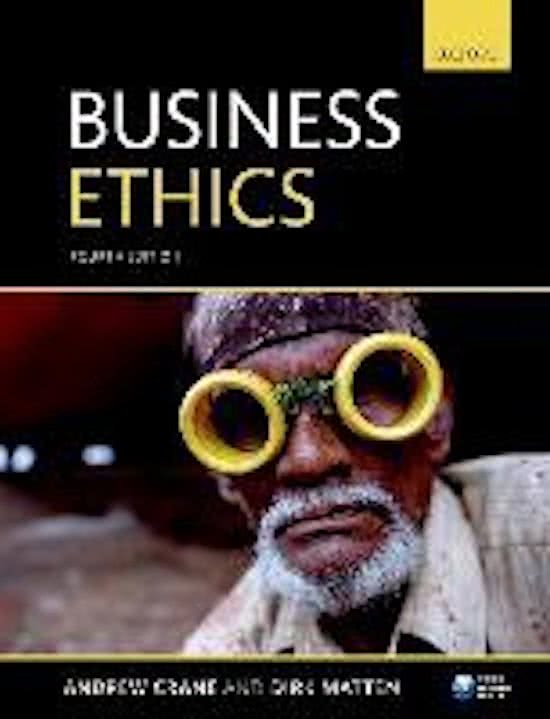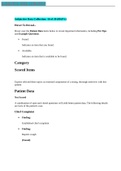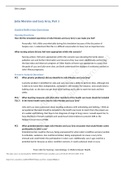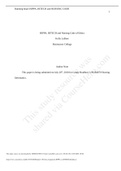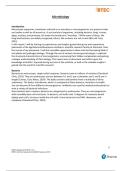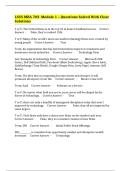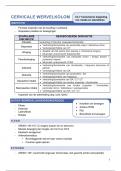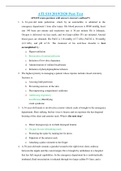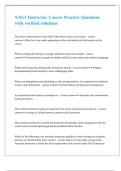Definition of Corporation
Legal Status & ownership: essentially defined in terms of legal status & Can corporations be morally responsible for its actions?
ownership of assets Self-interest → evidence to suggest that legal designation of a corporation makes
Independence: Corporations are notionally owned by shareholders but exist it unable to be anything but self-interested
independently of them Decision structure → every organisation has a corporate internal decision
Fiduciary responsibility: managers & directors have fiduciary responsibility to structure which directs decisions in line with predetermined goals
protect the investment shareholders Organizational culture → all organisations manifest set of beliefs & values that
Artificial persons: Corporations are typically regarded as artificial persons in the lay out what is generally regarded as right or wrong in the corporation –
eyes of the law organizational culture
Social responsibility – critique of Milton Friedman Why do corporations have social responsibilities?
Business reasons (enlightened self-interest)
- Extra/more satisfied customers
- Employees may be more attracted/committed
- Forestall legislation
- Long-term investment which benefits corporations
- Manage risk/uncertainty
- Maintain licence to operate
Moral reasons
- Corporations cause social problems
- Corporations should use their power responsibly
- All corporate activities have some social impacts
- Corporations rely on the contribution of wide set of stakeholders in society,
Responsibility
not just shareholders
What is the nature of corporate social responsibilities?
- Includes economic, legal, ethical & philanthropic expectations placed on
organizations by society at a given point in time
1 | Seite
, CSR – Business Ethics Session 2 Sept. 2018
Carroll´s four-part model of corporate social responsibility Triple Bottom Line (Elkington)
Strategic model of CSR
CSR in an international context
CSR strong in US: Influence elsewhere is more recent/This is partly explained by
explicit vs. implicit CSR
Regional differences exist with respect to all CSR levels
- Economic Responsibility
Focus in US on shareholders, France as extensive responsibilities for employees,
India has tradition of investment in local community
- Legal Responsibility
State seen in Europe as key enforcer of rules, elsewhere government seen with CSR & Strategy: Corporate social responsiveness
more scepticism (corrupt, interfering with liberty) - Refers to capacity of corporation to respond to social pressures
- Ethical Responsibility - Philosophies or strategies of social responsiveness
Wide range of local ethical values & preferences: expectations vary 1. Reaction
- Philanthropic Responsibility 2. Defence
Europe tends to compel giving via legal framework, elsewhere (US, India, China), 3. Accommodation
companies are expected to share their wealth 4. Proaction
2 | Seite

